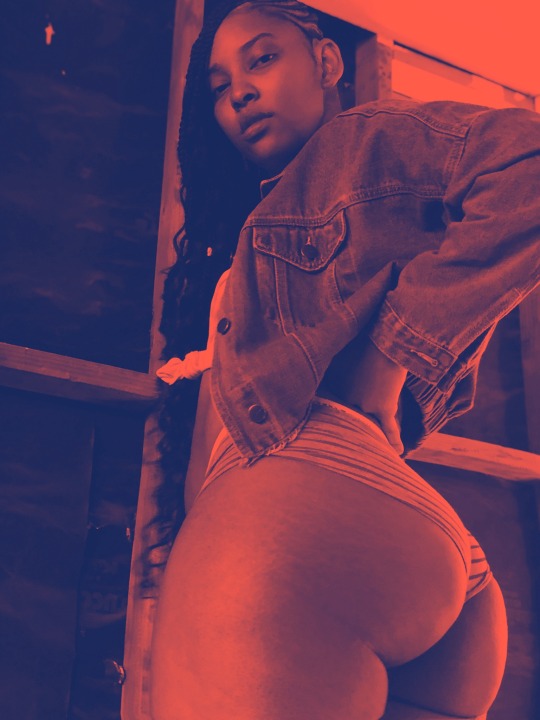#women's stories
Quote
When we speak of Orpheus, we remember him as the boy who could charmed his way into the underworld with his music. The boy who convinced even the dread king and queen of the dead to give him his lost love back. The boy who lost the love of his life due to his own folly, he looked back, he looked back when he shouldn't have. His grief takes up all the pages we can give him, he tells us his story and we mourn at his side.
But less is spoken of Eurydice. The girl who lost her life so cruelly on her wedding day. The girl who never stopped hoping that the boy she loved would find her even in this cold place, he would find her because their love was stronger than death itself. There is little said of her utter betrayal to see her only second chance at life bartered for an impatient glance.
Perhaps it is easier to know Orpheus' mortal grief than it is to acknowledge Eurydice's eternity of devastation.
After all, dead women can tell no stories.
And even if they could,
the world has already been taught not care.
Eurydice, Nikita Gill
#spilled ink#poetry#poem#writing#poets of tumblr#spilled thoughts#words#thoughts#greek myths#myth poem#eurydice#orpheus#women's stories#women's pain
2K notes
·
View notes
Text
The way historical context and just thinking of women as human changes things. Like the song, Weile Weile Waile. If you don't know anything about the song when you read the lyrics, it's a woman who stabs her baby to death and is hanged for it. Justice, right? But no.
Actually the consistent weile weile waile throughout the song isn't only mourning the baby, but mourning the mother too.
She had a baby three months old
Weile weile waile
She had a baby three months old
Down by the river Saile
You have to think why would this woman, living in the woods with her baby, suddenly decide to kill it at the age of three months old? Why is that age specified? She obviously kept it alive until then. She could have easily killed it out of neglect that early in life. Could have abandoned it if she didn't want to be a mother. Why kill it in that way, and why wait three months, during which she had to have fed it and attended to it, to do that?
She had a penknife long and sharp
Weile weile waile
She had a penknife long and sharp
Down by the river Saile
She stuck that penknife in the baby's heart
Weile weile waile
She stuck that penknife in the baby's heart
Down by the river Saile
Because it's quick. She didn't want it to suffer. She didn't have the means to keep it alive any longer. Because the song actually references The Great Hunger in Ireland. She's referred to as an "old woman" despite having a baby of three months old which therefore means she's not yet hit menopause. But poverty ages you much more quickly, owing to malnutrition and disease. She kept her baby fed as long as she could, and when she had no more food she couldn't bear to watch her baby starve to death. When she's asked if she killed the child she doesn't lie. She doesn't defend herself. She only answers in the affirmative. And then she's hanged.
And that was the end of the woman in the woods
Weile weile waile
And that was the end of the baby too
Down by the river Saile
In desperate times women are driven to do terrible things, and are often given no understanding or compassion from those in authority. But it's interesting how in song their voices can sometimes slip through.
9 notes
·
View notes
Text
The Bookbinder review
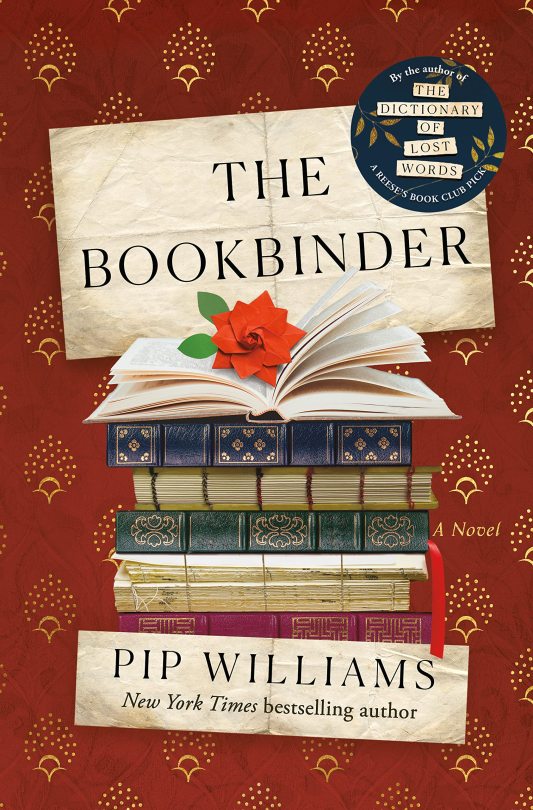
5/5 stars
Recommended if you like: history, historical fiction, women's stories, WWI
The Dictionary of Lost Words review
This is a great companion to Dictionary of Lost Words, though both could be read as a standalone without there being any issues. Tilda features fairly prominently in this book and we do see Gareth and a brief cameo of Esme. I liked getting to see familiar characters, even if Gareth + Esme's story drove home the tragedy in a different way. I especially liked seeing Women's Words and how much it impacted Peggy!
This book picks up around the start of WWI and pretty much follow the course of the war, with a couple chapters taking place afterward and depicting the experience of recovery. The Belgian refugees play a big part of Peggy's story, as well as that of her twin sister, Maude. They forge different connections to the newcomers, but each finds their lives transformed by those relationships. The Spanish Flu also comes in and we get to see how it impacts things at the Bindery as well as Peggy and Maude's lives more personally.
It was definitely interesting to see Peggy's struggles getting into Oxford. As a woman who did get into Oxford (graduate school, and Pembroke, not Somerville; also I declined admissions, lol), it was strange to read about all the hoops Peggy had to jump through just to be able to secure her spot. Not just one test, but two, with "Ancient bloody Greek" as one of the subjects, is quite a bit just to get in and study English lit. I really liked how Williams made this a commentary on barriers to entry and how Peggy was able to recognize that the entry exams were just another way to prevent non-aristocratic women from being able to reach for the kind of education offered at Oxford.
Oxford's difficult admissions process also ties into the suffragette movement. I didn't know that when Britain passed the law to allow women to vote that it only included certain women and only at the age of 30. Tilda is more closely tied to Peggy and Maude due to her romantic relationship with their late mother and so Peggy has much closer view of the suffragette movement than Esme did. Peggy supports suffrage but also sees the injustice of the bill being pushed prior to/during WWI and how it connects to her own struggles to get into Oxford. Peggy also recognizes how unfair the bill is to the women around her in the Bindery and at home who also don't have a higher education and aren't looking to get into Oxford.
Peggy is an interesting character to follow. She's worked at Clarendon Press as a bindery girl since she was ~12, though she dreams of being a Gown in Somerville, Oxford's women's college. She also feels a great responsibility for her twin sister, Maude, who is autistic and communicates through a kind of echolalia. When the war breaks out, Peggy feels she needs to do something and so volunteers to help with the Belgian refugees being housed in Oxford. She comes to enjoy her work and what she feels is freedom from watching over Maude. Peggy clearly has a big heart and big dreams, and she's acutely feels the barriers preventing her from reaching her goals. I liked that Williams made it clear that Peggy loved Maude, but that at times she wishes her twin could be more self-sufficient. At the same time, Peggy gets very jealous when someone new comes into Maude's life and begins caring for her in the way Peggy is used to. It's definitely a real thing that happens with sibling pairs where one sibling requires more accommodations and care, and even though I didn't always agree/like Peggy's thoughts about Maude, it did show a realistic way of coping and helped to show both Peggy's and Maude's growth over the course of the book.
There were so many people supporting Peggy throughout her journey. Maude is a big supporter, even if Peggy doesn't always recognize it, and Mrs. Stoddard, the head supervisor of the women's section of the Bindery, is another person who greatly champions Peggy. Gwen, a Somerville student Peggy meets volunteering, may be ditzy and doesn't always see her own privilege, but she does introduce Peggy to important Somerillian people and she goes to bat for Peggy and pulls some strings to make it clear to some of the Somerville leaders that Peggy would be a good candidate for both admissions and a scholarship, both of which do open doors for her. I liked how much community was present in this book and how much the women supported each other.
Maude may use echolalia to communicate, but she is very observant and good at reading people. She's particularly good at understanding the things people do vs. don't want to talk about and is a comforting influence to one of the Belgian women. Maude also seems to understand just how much Peggy needs her and for the most part is able to accept that role. She's very supportive of Peggy's dreams and I liked seeing them reverse roles when Peggy was studying for the Oxford entrance exams. Instead of Peggy making sure Maude got food and got outside, it was Maude making sure Peggy ate and didn't burn herself out. I enjoyed seeing Maude get the chance to grow into the person she was.
Lotte is one of the Belgian refugees and quickly bonds with Maude. Shortly after her arrival she and a few other women begin working at the Bindery and Lotte is paired up with Peggy and Maude, though it's clear from the start she prefers Maude. Lotte's story is a sad one, and while she opens up to Maude pretty easily, it takes her much longer to open up to Peggy, and seemingly only through a 3rd party. She struggles with what happened in Belgium throughout the book and and there are some moments when her PTSD flares.
Bastiaan is a Belgian soldier injured during the German invasion. He's one of the soldiers Peggy helps in her volunteer work and the two of them become friends, and then more, during that time. Bastiaan is another person who supports Peggy's dreams and he seems to understand Maude as well. I liked Bastiaan's mannerisms and how gentle he was. Like Lotte, Bastiaan is also dealing with ghosts and struggles with what happened before they were evacuated to England, particularly since he sees himself as someone who should've been able to protect Belgium and its people.
I liked Bastiaan and Peggy together. They're able to open up to each other in a way they can't to others, and I liked seeing how they helped each other and how they grew together. Their relationship also shows the struggle and balance that women had to face between education and a career vs. romantic love and a family, particularly if the women were lower class and didn't have family money to fall back on. Peggy loves Bastiaan, but she also wants more out of life. Bastiaan also loves Peggy, but he knows his future isn't in Engand. Thus, they reach something of an impasse. Despite that, their relationship ends the story on a positive and hopeful note (I suspect it's long-distance, though Williams doesn't say explicitly) and I can definitely see them finding a good middle ground where Peggy can have her career and Bastiaan can have his.
Tilda, as mentioned, also shows up in this one, though she's more present in letters than in person due to her being in the Voluntary Aid Detachment (VAD) and deployed to France. It's clear how much Tilda cares for Peggy and Maude, and as the book unfolds it becomes clear that Tilda and the girls' mom were romantically involved and that Tilda played a big role in the girls' lives. It was nice to see them together as a family, and I liked seeing how Tilda was with Peggy and Maude. I also think it was clever to include Tilda's letters at the end of some of the chapters so that we could get an inside view into what things were like in France. Williams does not pack her punches and Tilda's letters make the brutality and tragedy of the war even more clear than Peggy's own experiences volunteering do.
Overall, I really enjoyed this book and getting to see things through Peggy's eyes. I think Esme's story packed a more emotional punch than Peggy's, but I still felt deeply for the people in this story and the circumstances that brought them together. The book ends on a happy note and the characters (mostly) seem satisfied with where they've ended up.
#book#books#booklr#bookish#bookaholic#book addict#bookblr#books and reading#bookstagram#book review#book recommendation#the bookbinder#the bookbinder of jericho#the dictionary of lost words#historical fiction#history#wwi#women's stories
4 notes
·
View notes
Text
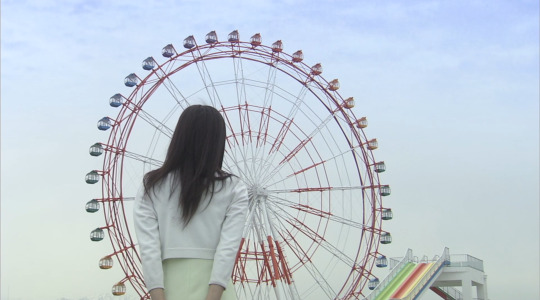
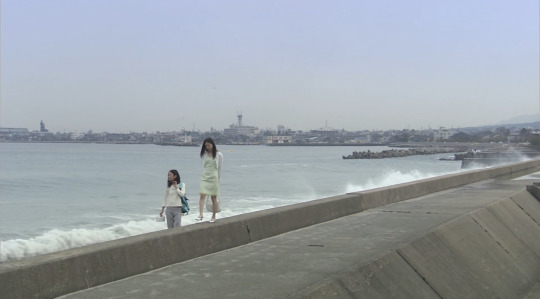
Strawberry Shortcakes (ストロベリーショートケイクス) -- Hitoshi Yazaki (2006)
#strawberry shortcakes#ストロベリーショートケイクス#Hitoshi yazaki#Japanese films#japan#alienation#tokyo#women's stories#josei#beach#slice of life#film stills#friendship#coming of age#Yuko nakamura#Chizuru ikewaki#Noriko nakagoshi#masanobu ando#Ryo kase#mine
12 notes
·
View notes
Text
If my mom sees a significant amount of blood she gets lightheaded, and has fainted on some occasions. Once it happened when we were kids, I wasn't there to witness it but I heard the story from my dad. Basically my brothers, around 7 or 8 at the time, were playing outside while my mom was making their lunch, and she accidentally cut her finger. It wasn't anything serious, but it drew a fair bit of blood and she passed out. My dad saw this and rushed over, but he didn't really know what to do so he just sort of started slapping her to wake her up (not recommended, but he had no idea and panicked)
At that exact moment my brothers both came in from playing, and all they saw was our mom unconscious on the floor and our dad slapping her. So, like, without even saying a word to each other they both just INSTANTLY start whaling on him, like, full blown attack mode to defend our mom. Which obviously didn't help the situation, but she did wake up and everything was fine.
Now our dad says that he's actually really glad they attacked him over what they thought was going on, because it means he raised good boys. And I still think that's true, they're very good boys.
#i think about this story sometimes like yeah I'm proud of them for that too actually. good job baby brothers#they're not babies anymore of course they're turning 20 next year which is crazy#but they're still the type of people who'd do something if they saw something of this sort happen for sure#respectful of women and everyone else too. they're good guys#I'm glad I ended up with them living in my house against my will for like 14 years#anyway i have no idea where i was for all this but my best guess is probably a friends house given the time period#i was always at my besties house lol#i hope she's doing well too actually. haven't spoken in forever...#bestie from greek elementary school... if you're out there... let's get muffins and fanta at the bakery across the street again someday 💜☮️
59K notes
·
View notes
Text
I'm getting so sick of major female characters in historical media being incredibly feisty, outspoken and public defenders of women's rights with little to no realistic repercussions. Yes it feels like pandering, yes it's unrealistic and takes me out of the story, yes the dialogue almost always rings false - but beyond all that I think it does such a disservice to the women who lived during those periods. I'm not embarrassed of the women in history who didn't use every chance they had to Stick It To The Man. I'm not ashamed of women who were resigned to or enjoyed their lot in life. They weren't letting the side down by not having and representing modern gender ideals. It says a lot about how you view average ordinary women if the idea of one of your main characters behaving like one makes them seem lame and uninteresting to you.
#feminism#media criticism#this doesn't apply to media with large casts of female characters where one or the other is uncommonly outspoken or ahead of her time#and it is dealt with realistically in the setting#im not saying women in the past couldnt be wild and headtsrong and revolutionary#i just think treating it as an essential whenever a female love interest gets added to a historical story about some man is wearing
18K notes
·
View notes
Text
#menopause#women#womens health#health#menopause journey#true story#stories#women's stories#Medium writers#Medium Stories
0 notes
Text

Actress Lesli Brownlee as Ally in this still shot from @hendersonshortfilm
1 note
·
View note
Text
This news surfaced yesterday and I just want to say this isn't new. This happened and has been reported more than once. There are also the Yemeni Jewish children who were kidnapped from their mothers by Ashkenazi "nurses", who claimed that the baby is dead, and diagnose the mother with hysteria/mental disorder after.
The lack of regard for people of color in Israel shouldn't come as a surprise at all. How many poc do you see in the government/ knesst despite the number of Ethiopian and Yemeni jews?
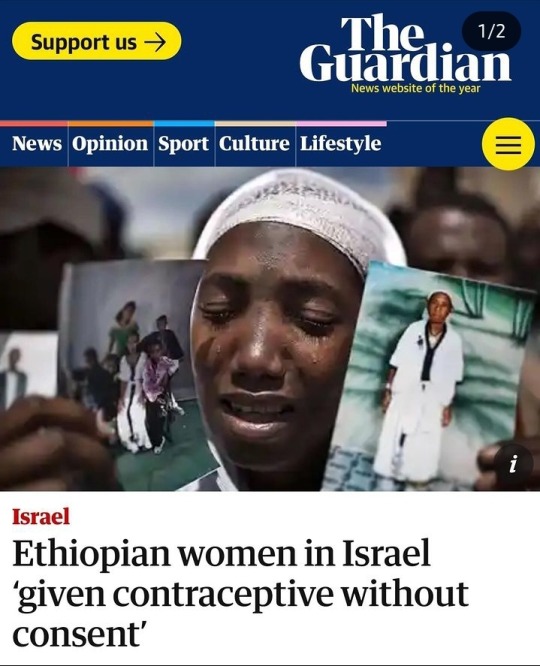
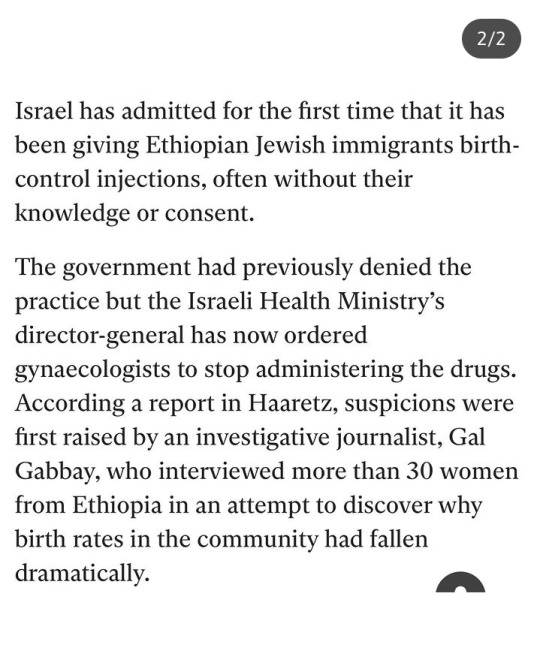
They're creating an all white country, this is colonizer behavior 101, the world just turned a blind eye.
#many of these stories are happening or happened sooo long ago#palestine#gaza#israel#important#current events#ethnic cleansing#free gaza#free palestine#gaza under attack#gaza under genocide#israel apartheid#people of color#black women#black tumblr#racisim#free palestine 🇵🇸#gaza strip#text post#usa#america
10K notes
·
View notes
Photo
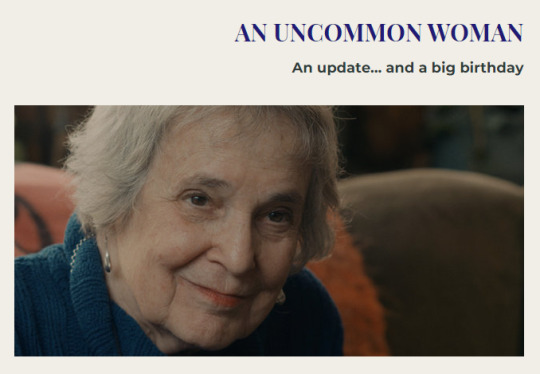
Director David D. Williams, consulting producer Marc Smolowitz, and the team working on AN UNCOMMON WOMAN, now in post-production, are delighted to be bringing opera director Rhoda Levine's undiscovered story to the world.
Learn more: 👉 https://bit.ly/3NkiaeM
#opera#women's art#art#women in history#women's stories#celebrating women#women#rhoda levine#opera director#david d. williams#marc smolowitz#music#opera music#DocumentaryFilm#documentary
0 notes
Text
Does it like, annoy anyone else when a story presents itself as "feminist" and "progressive", but also punches down on women who are sex workers or sexually active.
#txt#the creator will be like 'im challenging society's PURITANICAL NORMS and making more empowered female characters a sex positive story!'#and then women who are sexually active are framed as empty headed man-obsessed idiots
6K notes
·
View notes
Text
US transphobes are running with a new gotcha of “you never hear about WOMEN becoming MEN, hmmm curious!” and everyone is saying that you don’t hear about it because trans men are completely under the radar and like…that’s not true!
Did I hallucinate the “little girls are mutilating their bodies” “mentally ill girls are taking hormones” “what happened to our lesbians” “you wanna be a man I guess I can hit you” arguments that have been made for years??? Some of the main talking points of JKR???Hello!?
People are erasing trans men and it’s YOU TOO!
#transandrophobia#transphobia#transmisogyny#yeah trans men do get erased#yeah they don’t get targeted in the same way as trans women#but to pretend no one knows about them is patently false when various anti trans groups are even MORE aggro about trans men#so many anti trans books are about trans men specifically#99% of stories about ‘mutilation’ and ‘doctors FORCING HRT’ are about trans men#LJsm
10K notes
·
View notes
Text
A Space of One's Own
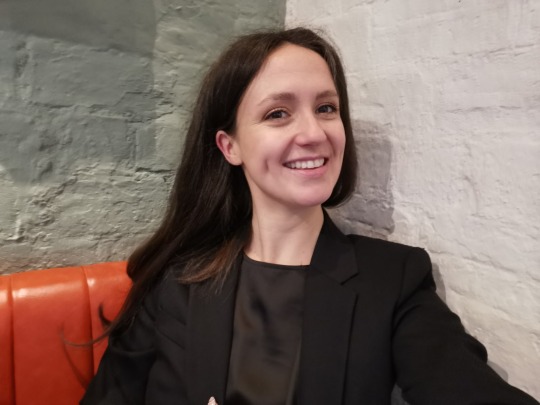
I have journaled for as long as I can remember; writing down everything I did that day, how it made me feel, and describing all of my emotions. I have stacks of old books covered in writing, recording my early teens and mid twenties, my heartaches and my dreams, my ambitions and fears that held me back. They are a wonderful tool for diving back into and putting life into perspective. Looking back at fears that would have consumed me in my teens and realising how ridiculous they were makes me think differently about the fears that consume me now.
One of the first feminist books I ever read was Virginia Woolf’s A Room of One’s Own - about how women historically have not had the space to sit, think and write their own stories. From then on, when I heard women’s stories I treasured them as rarities and found immense value in the words that were recorded by women.
Here in Scotland, women are killing it. Kirsty Strickland and Dani Garavelli are probably the sole reason I still buy print newspapers as they find a way to make sense of the world around them like no one else can. The author Sara Sheridan is constantly sharing threads on twitter of women throughout history who broke the mold and paved the way for the feminists of today, her book Where are the Women? is on my reading list too!
It’s not just Scotland. This year Hannah Gadsby’s Nanette helped me find the language to articulate my hurt in society but reminded me that anger will never form the solution. Everything that Ava DuVernay is putting out at the moment is educating me and shaping my world view. Phoebe Waller-Bridge gave us strong female leads in Killing Eve, but in Fleabag she spoke to our souls with monologues about choosing pain, friendships, anxiety and loneliness. When conversations about what it means to be a woman became something I couldn't engage with any further, this year I devoured Christine Burns’s Trans Britain, reminding myself of just how infinitely complex and vast the female experience is.
This year has been a year of surrounding myself in women’s stories, and in a year where I have found myself particularly broken I have found breathing space and sanctuary in them. Experiencing a miscariage at the end of last year forced me into a space of reflection and self care. My mum who lost two children, my brother and my sister, became my rock. It is her strength and years of talking openly and honestly about grief and loss that prepared me as best as I could be for my own experience.
I have known from the start that when I feel able I want to share my own experience but have become frustrated with the process. When I have tried to tell my own stories publically I never really feel like I have got it right. When I spoke about my experience at university I carefully chose the words to use, it was front page news but the words used there were not my own. It was my story but told for reasons that were not my own.
It is especially frustrating as a woman in politics. In nature I am a very open person, I talk freely about how I feel about the world around me and how I want to change it. Folk mistake this for confidence, being too sure of myself and at worst as self promotion. It is not. So when I try to talk about something which I know carries weight, I am sensitive to it appearing like I am being flippant, like it was just another thing I take in my stride and I am happy to talk about.
With my miscarriage this was not, and is not the case. Although I have spoken about the fact that it happened I have not shared much past that. I have guarded it because if I really speak about it I might fall apart. I might break even more. The words might be in my journals but if I tried to share them my throat would close up, my eyes would swell and I would be lost in full body visceral emotion which just isn't me. My journals are overflowing with my heartaches this year, brimming with emotions that a million women have felt before me yet I have been too scared to do anything with them. I’ve been scared that my words would not be used as I intended, that someone else would speak for me, this huge weight at the pit of my stomach is weighing me down and I have been nervous that if I share it with the wrong person it will get heavier.
That is why I have set up my own space, a space for me. Somewhere my words do not have to fit into a national conversation or someone else's narrative. These are my words and I share them knowing the power in sharing the female experience and in the hope that other women find healing in them just as I have.
So here it is, a space of one's own.
#Journaling#feminism#women's stories#scotland#virginia woolf#hannah gadsby#ava duvernay#phoebe waller-bridge#miscarriage#self-care
0 notes
Text
youtube
A reading list on motherhood from Leena Norms, books that have inspired women to have children or be child free, books about postpartum depression, about premature babies and abortion.
1 note
·
View note
Text
My favorite interaction of leather night wasn't even at the bar or at some guy's hotel room after, it was with the middle aged woman Lyft driver who I knew would be real from the moment I saw her pronouns in bio and 10 Snapchat filters over her flower crown selfie. As soon as I got in she was like "LOOKING GOOOOD, where are you off to?" She had tall as fuck blond hair like Dolly Parton and stuffed animals lined up under her windshield and fake flowers dangling from the ceiling. She told me about how she misses her days in California when she saw people dressed like me more often, how she loves her trans daughter, how she turned down Playboy at 40, and how she loves to watch her husband do gay shit. If we ever meet again we'll have to talk about making a biopic starring Jennifer Coolidge.
4K notes
·
View notes
